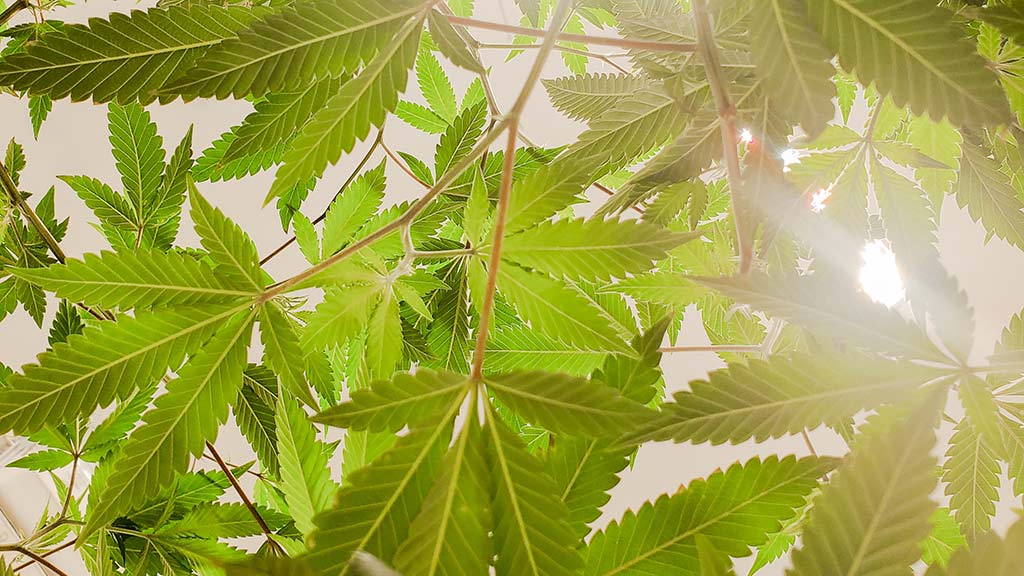CBD can be said to be one of the most promising and controversial health foods in recent years. Most online articles describe CBD as a miracle drug, but what is its actual effect?
This article will sort out human clinical research data and reposition the applicability and benefits of CBD.

Understanding Cannabis CBD
When it comes to marijuana, many people have negative thoughts. But in fact, if medical marijuana is used properly, it can indeed help improve diseases.
Marijuana itself contains various cannabinoids, with two main components: tetrahydrocannabinol (THC) and cannabidiol (CBD), which are present in the flower stems, leaves, and inflorescences of marijuana.
THC: has sedative, excitatory, and hallucinogenic effects, is addictive, and is listed as a controlled drug and drug.
CBD: It does not have hallucinogenic effects and can improve anxiety and assist in reducing epilepsy symptoms. It can be used to treat stubborn epilepsy in children, but is not listed as a controlled drug because it is not addictive.
More and more studies have shown that CBD has the effects of relieving pain and inflammation, controlling epilepsy, helping sleep, and relieving stress. It is also non-psychoactive and will not cause hallucinations or addiction.
In recent years, it has been regarded as an emerging health material, so there are many general foods and health foods with CBD as the main ingredient.
CBD is mainly extracted from cannabis. The cannabinoid composition of the extract varies depending on the cannabis variety and the part of the plant from which it is extracted.
Differences in Cannabis Varieties
(1) Cannabis
Cannabis is a broad term for cannabis plants, of which Sativa and Indica are the most commonly used varieties for recreational and medical purposes.
The THC content of these two types of cannabis is higher than 0.5%. Generally, processed recreational cannabis has a THC content higher than 20%, which is a prohibited drug. Its use and sale are restricted by law.
Common cannabis varieties include Cannabis sativa, Cannabis indica, and Cannabis ruderalis. Wild cannabis has a low THC content and can be used for work or hybrid breeding.
(2) Hemp
Hemp is a subspecies of Cannabis sativa, and its THC content is usually less than 0.3%, which does not make people feel excited;
On the contrary, hemp is a very useful industrial crop that can be used to make ropes, textiles, building materials, food, and CBD extraction, so it is also called industrial hemp. Although industrial hemp is legal in many countries, it is still restricted in some countries.
Hemp is also the main plant source of CBD extracts. CBD is not addictive and is not a controlled drug.
(3) Marijuana
Marijuana is defined as a variety or hybrid with a THC content higher than 0.3%, so it is a general term. The use and sale of marijuana is still illegal in many countries, but it has been legalized in some countries and regions.
Differences in Extraction Sites
Hemp oil and hemp seed oil, although only one word difference, but the ingredients are very different
- Hemp oil: Extracted from the flowers, stems and leaves of hemp, it contains CBD but almost no THC, so it is often used for medical purposes.
- Hemp seed oil: Hemp seed oil is extracted from hemp seeds. Its ingredients contain almost no THC and CBD, but it is rich in fatty acids (especially omega-3, omega-6, GLA). It is mostly used in the cosmetics field, can moisturize and resist oxidation, or used as cooking oil.
Different countries have different regulations on THC. Currently, the United States stipulates that THC content less than 0.3% is food grade.
Mechanism of Action of CBD
We have introduced how cannabis varieties and extractions affect the composition of cannabinoids. Next, let’s take a closer look at the ingredient CBD (Cannabidiol).
To understand the working principle of CBD, you must first understand the endocannabinoid system.
As early as 1992, the endocannabinoid system was found to exist in humans and mammals, helping to regulate various psychological and physiological functions, such as emotions, appetite, sleep, and pain perception.
Endocannabinoid receptors exist not only in the brain and nervous system, but also throughout the human body, such as skin, immune cells, skeletal muscles, cardiovascular and gastrointestinal tract, etc.
They are mainly divided into CB1 and CB2. The former is mainly distributed in the central nervous system, while the latter is mainly distributed in the immune system.
Endocannabinoids synthesized by the human body can help the body maintain balance and function normally by binding to CB1 and CB2 receptors. If the balance of the endocannabinoid system is affected by disease or external factors, it may indirectly affect human health.
Additional CBD supplementation can activate CBD receptors. When acting on CB1 receptors: it can relieve anxiety, pain, vasodilation and inflammation. When acting on CB2 receptors: it can regulate the immune system and ensure normal immunity.
On the other hand, some scholars believe that CBD can reduce the decomposition of endogenous cannabinoids, prolong the duration of action in the body, and strengthen the balance of the endogenous cannabinoid system.
Health Benefits of CBD
At present, the application scope of CBD is very wide, which is summarized as follows:
#Epilepsy#
There is research evidence to support that CBD can relieve symptoms of epilepsy.
The results of a randomized double-blind placebo-controlled study showed that taking 10–20 mg/kg CBD daily for 14 weeks significantly reduced the frequency of convulsive seizures in children with refractory epilepsy.
Compared with the placebo group, the overall condition of patients in the CBD group improved.
#Anxiety#
Many people are eager to try CBD, mainly because of its anxiety-relieving effect.
Research shows that in healthy (non-anxious) subjects, oral administration of 300 mg of CBD before a simulated public speaking session reduced post-speech anxiety scores relative to placebo.
Interestingly, another study also found that 300 mg of CBD could reduce self-assessed anxiety during a speech, but doses of 150 and 600 mg failed to achieve the same effect.

However, in actual public speaking tests (not simulated), oral administration of 300 mg of CBD reduced subjective anxiety scores after speaking, but had no significant effect on physiological indicators of anxiety (such as heart rate or blood pressure).
In addition, for patients with social anxiety disorder, oral administration of 600 mg of CBD can significantly reduce anxiety during speech performance; oral administration of 400 mg of CBD can also reduce self-assessed anxiety levels in patients with generalized anxiety disorder before and after neuroimaging examinations.
However, CBD did not significantly help healthy subjects with paranoid traits or anxiety tests with visual stimulation.
#Pain and Inflammation#
CBD’s ability to improve pain and fight inflammation has attracted the attention of many people, but few studies have evaluated the analgesic and anti-inflammatory effects of CBD alone.
Experts believe that the analgesic effect of cannabinoid preparations is unclear.
The pain level is calculated on a scale of 0 to 10, and a 3-point drop in the analgesic effect of the drug can be considered effective.
However, cannabis drugs can only drop by 0.4 points, and there are many side effects. Many international literatures basically do not recommend it.
#Schizophrenia#
Currently, the results of studies on the effect of CBD in improving schizophrenia are inconsistent.
Some research results show that patients with schizophrenia who take 600 mg of CBD daily have no effect on cognitive ability or disease symptoms compared with the placebo group.
Other studies have shown that taking 1000 mg of CBD daily in combination with existing medication can improve the symptoms of schizophrenia.
However, the effect of CBD on patients with schizophrenia still needs to be evaluated in large-scale placebo-controlled studies.
#Addiction Withdrawal#
400 and 800 mg of CBD can reduce cravings and anxiety during heroin withdrawal.
Oral administration of 800 mg of CBD appears to reduce the pleasure of smoking, but did not change the subjects’ cravings or withdrawal questionnaire scores. CBD inhalation also did not reduce the craving for smoking.
#Parkinson#
A double-blind study showed that oral administration of 300 milligrams of CBD for 6 weeks improved subjective self-assessment in the CBD group compared to the placebo group, but clinical disease symptoms did not improve. Lack of sufficient and randomized placebo-controlled clinical trial evaluation confirmation.
#Insomnia#
A randomized double-blind placebo-controlled study involving 27 healthy subjects found that oral administration of 300 milligrams of CBD did not alter any sleep indicators, and further research is needed to evaluate the impact of CBD on sleep quality.
#Improve Sex#
Although early research has excited CBD enthusiasts about its potential in health and sexuality.
Some studies do indicate that CBD can indirectly improve sexual performance by reducing anxiety, improving emotions, and helping to lower hypertension. These factors will all affect your ability to achieve or maintain an erection.
However, there is no evidence to suggest that cannabidiol extracted from cannabis plants (CBD) oil can improve erectile dysfunction (ED). There is still a lack of sufficient and randomized placebo-controlled clinical trial evaluation confirmation.
In summary, there is ample evidence to support that CBD can alleviate symptoms of refractory epilepsy in children with Lennox Gastaut Syndrome and Dravet Syndrome.
For other symptoms, there is a lack of adequate, randomized, placebo-controlled clinical trials to evaluate the therapeutic effects of CBD.
Especially, there are large differences in CBD dosage, formulation, frequency of use, study population, measurement indicators and methods in different studies.
It is very difficult to compare between studies and draw definitive conclusions about the therapeutic effects of CBD for specific conditions.
Security Aspects of CBD
Although research data shows that CBD has low toxicity, no hallucinogenic effects, extremely low risk of abuse, and is well tolerated by adults, there are still two areas of caution when using CBD:
- Increased liver index: Some participants took 20 mg/kg CBD daily for more than 12 weeks, and their liver index (ALT) increased to more than three times the normal value.
- Drug interactions: CBD may affect the metabolism of enzymes CYP2C9 and CYP2D6 in the liver, leading to an increase in drug concentration relying on these enzymes for metabolism.
In addition, the various marketing propaganda that permeates our daily lives may lead consumers to mistakenly believe that the research results of pharmaceutical-grade cannabinoids can be applied to all retail CBD products?
But it is not the truth!
As research continues to progress, it will be important for consumers to consciously distinguish which products may have therapeutic effects and which do not.
So far, the development of the CBD market has far surpassed scientific research, but the exact effect still needs to be verified by more research in the future. Don’t believe the sweet talk in advertisements. If it is so effective, there is no need for advertising!
